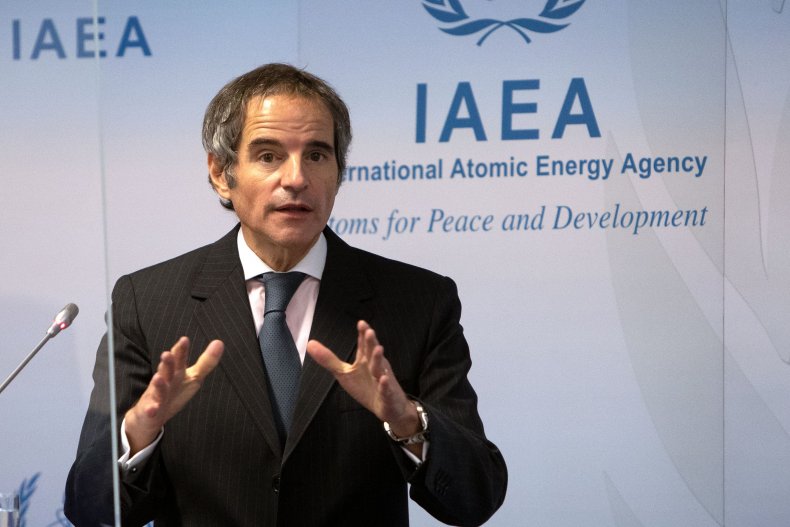AhlulBayt News Agency (ABNA): On the eve of the International Atomic Energy Agency (IAEA) Board of Governors' meeting that would focus on the Iranian nuclear program, some speculations suggest that the West is planning an anti-Iranian resolution especially following the biased report by the IAEA about peaceful Iranian nuclear program, the Western moves including the recent European tour of the US special envoy to Iranian affairs Robert Malley, and the massive Israeli media propaganda against Tehran in recent days.
However, Russian Deputy Foreign Minister Mikhail Bogdanov made it clear that Moscow would oppose any anti-Iranian resolution.
Last week, the Wall Street Journal reported that the IAEA chief Rafael Mariano Grossi in his recent report said that Tehran restricted the IAEA experts access to the nuclear sites and continues its enrichment program.
Unrealized Western promises
Undoubtedly, the main purpose of the Western pressures on Tehran through the instrument of the IAEA and the resolution of the Board of Governors is to force the Islamic Republic to walk back from its principled and logical positions in the Vienna talks that have been held so far for six rounds to discuss the US return to the 2015 nuclear deal, officially called Joint Comprehensive Plan of Action (JCPOA) for its revival. Previous US President Donald Trump withdrew from the agreement in May 2018 and reimpoed all sanctions on Tehran.
After last year's change of the US administration and the expression of the new officials' will to return to JCPOA, Iran insisted that the US return to its commitments should be fact-checked and verifiable, adding that Washington should give guarantees that it would not again break its commitments to the hard-reached deal. In the previous negotiation rounds, the US neither accepted responsibility of the consequences of its quitting the nuclear agreement nor did it agree to lift the sanctions. Instead, it pushed to drag non-nuclear subjects into the talks amid the Iranian insistence that the negotiations should remain purely nuclear.
Iran's push for guarantees from the US has a logical basis: A believer should not be stung twice from the same hole. Iran, successfully weathering the effects of the American sanctions, has burned all of the play cards of Washington. Meanwhile, the new Iranian government announced that it will not prioritize the JCPOA , will not tie the economic growth to the nuclear negotiations, and will go to negotiations only if they are tangibly fruitful to Iran.
Certainly, the ball is now in the West's court, and taking an inconclusive and already tested-and-failed approach to press Tehran only complicates the situation for the West. Iran's representative to the IAEA Kazem Gharibabadi issued a warning about Western counterproductive moves, adding that the IAEA and its policy-making institutions cannot separate themselves from the fate of the nuclear agreement and any "non-constructive" move only disrupts the negotiations.
Iran has the world's most transparent nuclear program
The Western push for a IAEA resolution against Iran's peaceful nuclear program is obviously politically-motivated and disconnected from reality. The fact is that Iran, which has reduced some of its nuclear commitments step by step in accordance with international rules in response to West's breaking of commitments, still has the most inspected and transparent nuclear program in the world and does not violate any of the basic principles of nuclear safeguards and Non-Proliferation Treaty (NPT).
The Western countries close eyes to the nuclear activities of Israel that regularly threatens regional peace and stability and has records of military hostility against the neighbors and threats to other regional states. Instead, they focus on Iran which has in place a proposal for a nuclear weapons-free region. Many analysts agree that hostile measures by some Western countries led by the US not only are not legitimate but also do not represent the viewpoint of the international community. The Russian promise to block any Western anti-Iranian resolution seriously questions the Western and the largely Western-influenced IAEA claims.
129/

